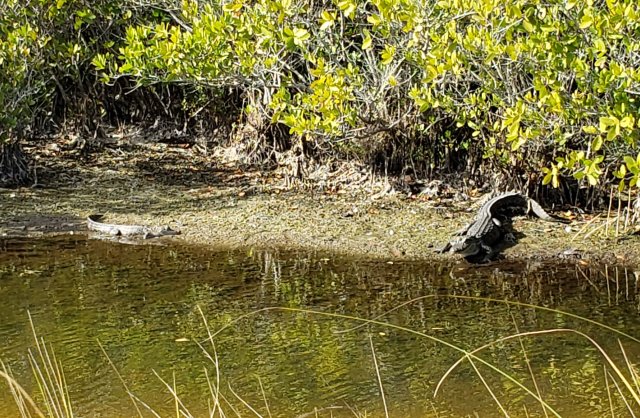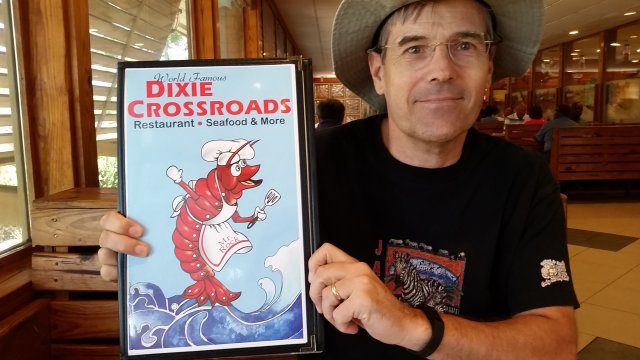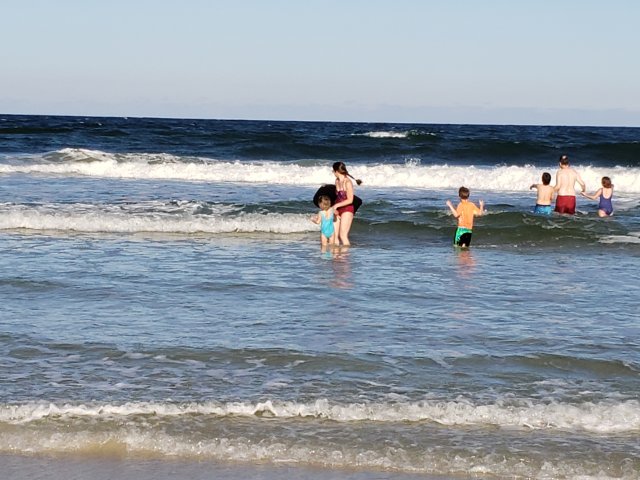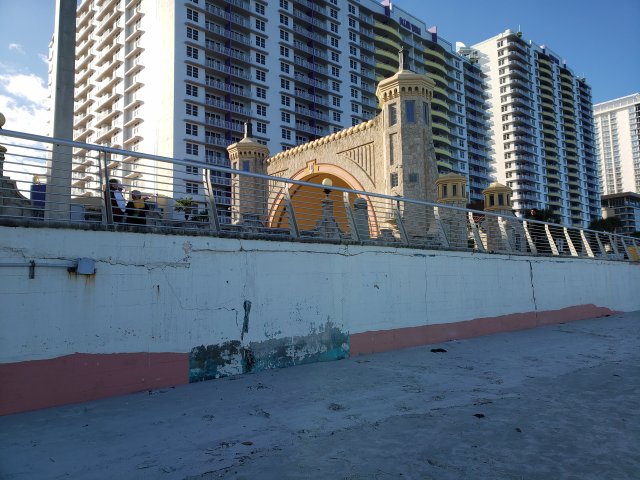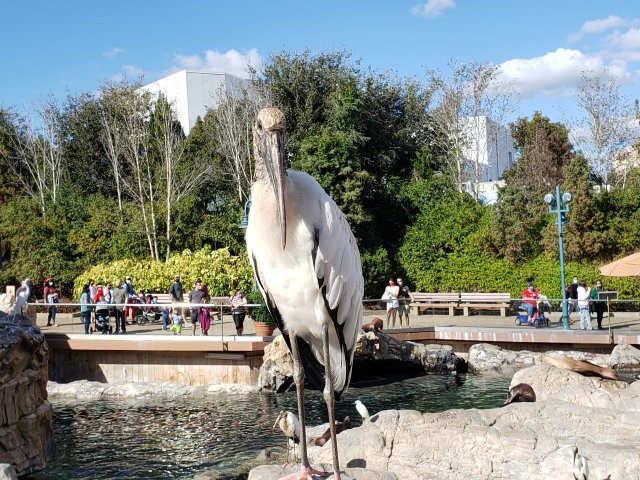President Biden's new vaccination mandate is blatantly unconstitutional, to use the most polite words I can think of at the moment. And it is becoming abundantly clear that this doesn't bother him. As with the eviction moratorium and several other recent Executive Branch actions, the courts will no doubt rule against it. But as with the others, by then the damage will already have been done. Even the courts can't unvaccinate someone, can't undo the stress of job loss, can't make up the losses of the small landlords who depend on regular rental income, and certainly can't fully restore the faith of small business owners who have discovered just how easily the government can take control of their lives.
Here is Canadian lawyer David Freiheit's nine-minute legal analysis of the situation.
The Constitution exists for a reason, and when our elected officials stop respecting the supremacy of the Constitution it is a big, big problem, and that is as much true for the United States as it is for Canada.
I don't care whether it's Prime Minister Trudeau, President Biden, President Trump, Governor Cuomo, Governor DeSantis, or the lowliest city mayor—I fear an increasingly powerful Executive at all levels.
I fear even more those who think this executive power is a good thing as long as they are in favor of whatever is being mandated.
Back in 2008, I first posted the clip that is pretty much all I remember from the movie, A Man for All Seasons. I brought it back again in 2012. I don't know if it says more about the State of the Union or my own mental state that the third, fourth, and fifth reprises are all in 2021.
What would you do? Cut a great road through the law to get after the Devil? ... And when the last law was down, and the Devil turned round on you—where would you hide ... the laws all being flat? This country is planted thick with laws from coast to coast ... and if you cut them down ... do you really think you could stand upright in the winds that would blow then? Yes, I give the Devil benefit of law, for my own safety's sake!
I'm reminded of a story from an otherwise long-forgotten sermon of my experience: Martin Luther, we were told, was once asked by a member of his congregation, "Why do you preach justification by faith every week?" Luther replied, "Because you forget it every week."
Finally, someone—someone whose work I respect—has said what I have been saying since the beginning of the pandemic lockdowns. I'm tired of being laughed at, and much worse, when I point out that it is inconsistent to excoriate people who resist some of the anti-pandemic measures, while at the same time themselves not thinking twice about driving a car. Both are actions that can endanger others, but most of us have decided to give automobile dangers a pass. We think so little about them that we tolerate, even joke about, impaired driving, speeding, road rage, poorly-maintained cars, and driving without a license or insurance coverage. Cracking down in these areas would no doubt make a huge difference in automobile injuries and fatalities. But even then there would be dangers from weather, from carelessness, and from that wasp that flew in the window and is crawling into your ear. (The last really happened to a friend of ours, who managed to get off the road safely—I'm not sure I could have.)
You want to protect yourself and others? If you can't walk to where you are going, stay home.
But of course we don't do that. The consequences would be too great.
I want people to understand that the various measures we are taking against this pandemic also have great consequences, ones that are not as immediately obvious as ending up in a COVID hospital ward.
George Friedman says it well in his article (from which I took my own post title), COVID and Cars. Unfortunately, it is behind a pay wall, but I've extracted a few quotes.
Every year in the United States, about 40,000 people die in car accidents. Some 1.35 million die in car accidents globally. In fact, they are the eighth-largest cause of death in the world. In the United States, about 3 million people are injured in automobile-related accidents.
These numbers exist despite all the efforts made to make cars safer. The reason cars aren’t banned is because the economic and social consequences of doing so would be devastating. The supply of food and other essentials requires trucking. Maintaining friends and seeing family require cars. In the United States, our ability to use land efficiently depends on cars to sustain a dispersed population. Yet this dependency carries a risk. In the back of your mind, you are aware as the ignition is turned on that you may die. You dismiss this possibility, of course, and proceed with your life.
What has happened is that a known risk of death and injury has been measured against the necessities of life, and a calculated risk has shown that tolerating the chance of death and enjoying the benefits of the car is preferable to seeking to eliminate car deaths by eliminating the car. The principle that death must be fought by all means is not practiced in the case of car deaths because a more subtle calculation takes place.
It’s a reminder that in most actions of human life there is a possibility of death or injury, but a life without those things would be impoverished. You can live without many things for a short and predictable period. Living without them indefinitely creates pressures on individuals and society. The trade-off between death and life is the human condition.
The idea that we can go on indefinitely with each new chapter forcing us to shelter in place is a superficial view of what will happen. As with automobiles, where we risk death on every ride and where many find it, the risk of COVID-19 will be integrated into our thinking, and we will make choices.
If you really want people not to act stupidly, it might be better not to shout continually to them and all the world how stupid they are. Most people do have logical reasons for their actions, and if you want to change their behaviors, it helps to make a serious effort to find out why they do what they do.
I confess: I chose this particular post title because I'm curious what Facebook will do with it. But it's also true that it's about nonsense.
Today I came upon this article in the Tampa Bay Times. Two things reminded me of why following the news isn't good for my blood pressure.
As the pandemic takes another turn for the worse, Florida health experts are struggling with infrequent and incomplete data releases from the state. The state stopped reporting daily COVID-19 infection and vaccination data on June 3.
Sounds scary, right? How can one make decisions without data, and Florida has stopped reporting COVID-19 information.
But no. As the next sentence reveals,
Instead, it sends out weekly reports every Friday
Weekly data ought to be good enough for anyone; in fact, I'd rather get the numbers only once a week, since it smooths out the unhelpful bumps caused by daily reporting variations, e.g. the spike on Mondays because not all agencies file reports on Sundays.
We are far too addicted to instantaneous data, even if it has little significance. Feeding Central Florida hour-by-hour hurricane updates when the storm is still over a thousand miles away does no one any good. We already know what basic preparations we must make just in case it comes our way, and it's 'way too early to make evacuation decisions. Too much data only leads to panic and unwise behavior.
Most annoying from the article, however, is the attitude of this hospital spokesman:
“The reality is that I see a lot of people get sick from COVID, but I haven’t seen people come in with serious side effects from the vaccine,” Wilson said. “I haven’t seen anything bad happen to anyone for getting the vaccine.”
What does this say? It says that this person has no idea why rational and intelligent people would hesitate to get the COVID-19 vaccine. It reveals that she views them all as stupid and stubbornly ignorant. I know many people who have not yet been convinced to take the vaccine, none of them stupid, many of them much more knowledgeable about the risks and benefits than most of us who never questioned the wisdom of getting our shots.
No one I know is worried about present side effects, which is what this hospital representative is addressing. Their concerns are primarily that long-term side effects are completely unknown, because there simply has been no "long-term" as yet. For that matter, we are equally ignorant of the long-term effects of a COVID-19 infection itself. After all, it was decades before post-polio syndrome was recognized. If there are long-term negative side effects of the COVID vaccine, they may be significantly less than the side effects of getting the disease. Or they may be worse. We. Don't. Know.
If I were trying to convince someone to get vaccinated, I'd take their concerns seriously. I wouldn't shut their ears by calling them stupid and ignorant. I'd admit that we simply don't know and can't know what the long-term effects of the vaccine will be, but that to the best of our knowledge (if that is truly the case) they are likely to be less serious than the risks of getting the disease, both immediately and long-term.
It's a calculated risk we take with every vaccine, with every medical procedure, indeed every time we get into an automobile or do anything in life.
Neither coercion nor contempt have a good track record at changing people's minds. Making an effort to understand their point of view guarantees nothing, but it's a much better place to begin.
Permalink | Read 1153 times | Comments (0)
Category Hurricanes and Such: [first] [previous] [next] [newest]
I LOVE the Independence Day parade and festivities in Geneva, Florida. I've written about it many times. We were small in numbers this year, but infinitely bigger than in 2020, when there was nothing at all. Thanks to Liz, our organizer and director-by-necessity, and to the good people of Geneva, marching in the parade was still a blast. The event organizers tell us that our antics are "one of the most frustrating things, and yet one of the things that the parade goers enjoy the most."
Thanks to the fact that the Fourth was a Sunday this year, Geneva's party was held a day early. And the federal holiday is a day late, so we enjoyed three days of festivities. Less happily, our neighbors have been making it a week-long holiday with their fireworks. It's a good thing the drought has broken.
The best part of the parade is interacting with the crowd, and hamming it up with my cymbals as we march along. Porter does the same with the water wagon (and its following shark). All it takes is a willingness to leave all pride and self-respect behind as the parade steps off.
I'll have to admit that the cymbals get heavier with every year, and running to catch up with the band—after letting a small spectator "help me out" by banging the cymbals—now leaves me a bit winded. It's a good thing Porter (aka Gunga Dad) is always ready with a drink to keep me hydrated!
The people of Geneva are always so warm, friendly, and encouraging. They love our country, their heritage, and their band. We didn't start in Geneva; 30 years ago we were the World's Worst Marching Band and played gigs not only in Central Florida but as far away as Atlanta and Philadelphia. Geneva at its worst couldn't outdo the heat of Atlanta's Independence Day parade, when Peachtree Street's pavement melted under our feet and (thanks to Gunga Dad) we were the only band not to have someone faint. But when the World's Worst Marching Band put itself out to pasture many years ago, Geneva welcomed us as their own.
One of the exhibits we checked out this year was a travelling exhibition of artwork created using wood from The Senator, our much-beloved and long-lamented bald cypress, which was the oldest in the world when it was destroyed by a careless drug user in 2012. I was expecting something tacky and touristy ("Get your gen-u-wine Senator key ring here!") but it was nothing of the sort. Rather, it was moving and respectful, telling the story of the tree and displaying beauty from ashes through art.
Part 1 of the visit of our Swiss family is here, part 2 here.
At last, Christmas drew near, and we focussed our activities nearer home. Christmas Eve saw us in church, of course, with some of our guests pressed into service in our hand chime choir. Hand chimes are not nearly as beautiful as handbells, but they are what we had. We didn't even have a handbell choir until it emerged as a desperation move to give our choir a way to make music when rehearsing and singing were forbidden. In this we were oppressed, not by the state, but by our very own bishop, whose rules were far more draconian than the governments'. I had so looked forward to being able to share with our family the absolute beauty of our high church worship, especially on such a special day, but it was not allowed to be. Nonetheless, we were grateful to be permitted in-person services at all. We were there; God was there. And some of us went back later for the midnight mass.
 cropped.jpg)
.jpg)
.jpg)
Credit for the above three photos Anke Cirillo of Three Point Photography
And then it was Christmas! Happiness is a house full of family.
After Christmas we boldly got together with our long-time friend and former choir director for one of our spontaneous music-making sessions. It's impossible to describe what a glorious outpouring of joy there is in these events. I do have a few recordings I treasure, but out of respect for the true musicians who don't always appreciate having their impromptu experimentations broadcast to the world, I'll leave it to your imagination. We had singing, piano, harmonica, viola, recorder, hand chimes, and all manner of percussion. If I could do this every night I know my mental state would take a drastic turn for the better. And the interaction between me on the tambourine and our granddaughter on the maracas was pretty good physical exercise, too.
We visited several playgrounds and natural parks, including taking the Black Point Wildlife Drive on the east coast. It's a favorite of ours, and a lovely place to see birds. On this trip, however, the more exciting views were of another sort:
And what's a trip to that part of the state without a stop at the Dixie Crossroads restaurant?
We continued to enjoy our final days of this visit, trying not to think too much about the upcoming long trip to Miami and the even longer trip across the Atlantic. And the 10-day quarantine awaiting them back in Switzerland. But they survived all that without catching COVID-19, and so did we. We are so grateful to Florida for welcoming our overseas family, to Switzerland for letting them come (and return), and to all whose efforts made this visit possible. I hadn't fully realized the toll these pandemic restrictions had taken on our mental health until we were reminded of what we were missing. I believe this visit came just in time, and I'm so glad we made the joyful choice.
This December visit seems more than six months distant, given that January and February brought us vaccines and the beginning of more freedom, at least in Florida. It would be April before the Northeast opened up enough for another healing family visit ... and that's a story for another post.
Permalink | Read 3967 times | Comments (0)
Category Hurricanes and Such: [first] [previous] [next] [newest] Health: [first] [previous] [next] [newest] Politics: [first] [previous] [next] [newest] Children & Family Issues: [first] [previous] [next] [newest] Everyday Life: [first] [previous] [next] [newest]
Since it changed hands, I haven't found the Babylon Bee as interesting as it used to be. Or maybe Facebook has only been showing me their worst efforts recently; sometimes I think Facebook is a conspiracy theory dream all by itself.
In any case, this one is funny on more than one level. Be sure to watch to the end; it's only two minutes long.
Permalink | Read 1041 times | Comments (0)
Category Hurricanes and Such: [first] [previous] [next] [newest] Just for Fun: [first] [previous] [next] [newest]
I'm guessing not many of my busy blog readers will find it a worthwhile use of 14 minutes to see the latest Viva Frei video, about more Canadian craziness, but I'm sure it could easily happen here. I'm very pleased that we now have two bona fide medical doctors in the family, but I'm beginning to wish we had a lawyer as well.
The short version is that a couple from Alberta was accused of being in contempt of court for violating a court order that they were not a party to, and had not been served notice of. Let that sink in a minute. Spoiler alert: after lawyers representing them pushed back, the Crown retreated, but came after them from a different angle, successfully getting a court injunction against their planned, peaceful protest on private property.
Apparently their protest violated Alberta's strict lockdown regulations, so the Crown had a case for fining the couple for the violation. I believe that suspension of Constituional and/or Charter rights (freedom of assembly, of peaceful protest) in the name of public health has been grossly misused, but that's not the issue. Let it stand for the moment.
What a conviction for contempt of court (either in the case that was withdrawn or through the injunction) does is up the cost of the protest significantly, adding criminal penalties and potential jail time to the fine. One could speculate that the initial imposition of the regulations went through proper legislative procedure (thought I doubt it), but this is an egregious attempt to impose harsher penalties than the law provides for.
Be that as it may, I enjoyed learning about the two types of contempt of court and more about how the system works.
Permalink | Read 1169 times | Comments (0)
Category Hurricanes and Such: [first] [previous] [next] [newest]
I've never claimed to be a prophet (those guys are supposed to get it all right), but every once in a while I surprise myself. Looking back through old posts, I found this, which I had posted on January 1, 2020:
Permalink | Read 1234 times | Comments (0)
Category Hurricanes and Such: [first] [previous] [next] [newest] Inspiration: [first] [previous] [next] [newest]
Being a Floridian, and one who has enjoyed several cruises, I was naturally intrigued by the following Viva Frei episode in which attorneys David Freiheit and Robert Barnes discuss Florida's lawsuit against the CDC's shutdown of the cruise industry. The video is just under 14 minutes long.
As I said, the story was of mild interest to me from the beginning. It was already on my "blog about this, maybe" list. However, it turns out to have a personal angle that makes it even more compelling. Unfortunately, I can't talk about it for privacy reasons, but it serves as a clear though pleasant reminder that no matter how nameless and faceless the machinations of government and business seem, there are real, everyday people behind them all. We forget that to our peril.
Last Sunday, Viva & Barnes revisited the story, reporting that the judge, instead of ruling on the case, sent both parties to mediation. (The relevant part of the video is 26:18 - 28:29.)
Here is another example of what a difference "spin" makes in news reporting. Barnes clearly sees the mediation order as an indication that the judge would rule in favor of Florida if he had to, and as a way for the him to let the CDC save face while keeping himself from being accused of "killing granny." However, most news articles I read have reported it as a setback for Governor DeSantis, and pointedly place the blame for cruise ships fleeing Florida, not on the CDC's restrictions, but on both DeSantis and the Florida Legislature for forbidding discrimination against people who have not been vaccinated.
I certainly hope that Barnes is right, and more accurate in his analysis of the judge's inclinations than he was of the judge's gender—though these days I'll admit the latter is a trickier call than it ought to be.
Part 1 is here. Now for more of our adventures during our December attempt at choosing joy and life amidst a pandemic-inspired focus on fear and death.
The eight of us did most of our venturing-outside-the-home together (being blessed with a car that seats that exact number), but occasionally we split up, as when two of us spent a day at EPCOT and the rest of us sought our entertainment at a classic American mini-golf course. Both groups had great fun. Credit goes to Disney for keeping their parks open and at the same time uncrowded so that the experience felt safe as well as fun. Remember that back then we knew much less about outdoor transmission (or lack thereof) of the virus, and people were nearly as scared outdoors as inside. The golf course was similarly comfortable.

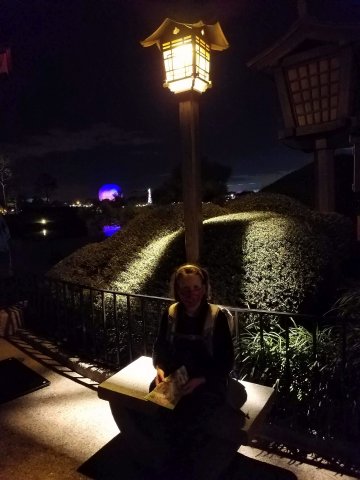
Left: Congo River Golf; Right: EPCOT at night. Click to enlarge.
We also separated to give Janet and Stephan a chance to celebrate their anniversary on their own. They chose a hotel on Daytona Beach, and we joined them the next day for the chance to swim in the Atlantic Ocean on the first day of winter. Porter and I declined the swim, as it was 66 degrees, cloudy, and windy. That didn't stop the hardy Swiss, however! I didn't realize until we arrived that they had chosen a hotel on the same section of beach where I spent so many happy hours as a child—a five-minute walk from my grandparents' house. The coquina-built bandshell is much the same, and so is the ocean, but almost nothing else.
Closer to home, we visited the Orange County History Center, which thoughtfully made it possible to see the good stuff while avoiding the decidedly-child-inappropriate special exhibit of history's darker side. We picked out and decorated our Christmas tree, made cookies, and generally prepared for the holiday, which is not surprisingly much more fun with children around. We visited playgrounds, worked on various projects at home, swam some more, and sang and played music together.
Only twice in our entire month together did I feel the least bit uncomfortable with regard to COVID-19. The worst was at our local pizza party arcade, since we arrived at a time when a large party of people without masks crowded the place. Fortunately it was easy to return later.
The second time was at Sea World. I mean no particular criticism of the park, which clearly took precautions very seriously: taking temperatures, requiring masks, keeping even the outdoor stadiums at low, well-distanced capacity. But overall the park was more crowded than allowed for comfortable distancing, unlike our experience at EPCOT. However, this was on December 23, one of the busiest days of the year, one we'd normally have avoided like the plague. (Perhaps that analogy isn't the best one to use at this time.) The experience was overall delightful and certainly much more pleasant than it would have been in a normal year.
More to come.
Permalink | Read 1535 times | Comments (1)
Category Hurricanes and Such: [first] [previous] [next] [newest] Health: [first] [previous] [next] [newest] Politics: [first] [previous] [next] [newest] Children & Family Issues: [first] [previous] [next] [newest] Everyday Life: [first] [previous] [next] [newest]
According to this article,
During an interview on CNN's "State of the Union," [CDC director Rochelle] Walensky was asked about vaccinated Americans who have contracted the virus—and whether anyone has died from an infection, despite being inoculated. Walensky said the CDC is aware of 223 so-called "break-through" infections in vaccinated Americans, but clarified that many of those individuals died due to other causes. "Not all of those 223 cases who had COVID actually died of COVID," she said. "They may have had mild disease but died, for example, of a heart attack."
This makes perfect sense to me. From the beginning of this pandemic, I have been frustrated by seeing a clear tendency to report all deaths in anyway associated with COVID-19 as caused by the virus. Witness the testimony of a friend of ours, a nurse, who (in another state) was ordered to count as new, active COVID-19 cases anyone who tested positive for the COVID-19 antibodies—which meant that many cases were counted multiple times. And that of an Emergency Medical Technician I know who only partially joked, "If someone with COVID-19 is run over by a truck, his death is counted as a COVID-19 death." Then there's the death I know about that was put down as due to COVID-19 but should have been "nursing home neglect." Of course these are isolated examples, but good luck trying to convince me that they aren't representative of widespread mis-information.
What it comes down to is this: What are you trying to prove?
When the powers-that-be were trying to justify elaborate and invasive regulations in reaction to the pandemic, it was to their advantage that the numbers be as large as possible. But when the object is to reassure the public of the safety and effectiveness of the vaccine, the advantage lies in giving the virus no more blame than is absolutely undeniable.
I happen to believe that the CDC is closer to the truth in the case of the vaccine, but that's not the point. What's important is that with every report, every news story, every rumor,
Always, always, always ask, Cui bono?
Who benefits? What are they trying to prove? Follow the money.
This is the post I started to write five months ago, but postponed to make sure everyone involved got through their quarantines and other impedimenta successfully.
I like to think that we've been more careful than most during this pandemic, though more due to the concern of our children (who apparently think we are "old") than our own. But when you're retired, and introverted, and not easily bored, staying home is a pretty easy option. We wore masks before our county made them mandatory, shopped only for what we deemed necessities, and used the stores' "senior hours" when we could. I'm also the only person I know who consistently washed (or quarantined) whatever we brought home.
But all that isolation, particularly the lack of physical touch, is hard even on introverts.
Hardest of all was cancelling our big family reunion scheduled for April 2020—coinciding with what was supposed to be the first visit home in six years of our Swiss family. Following close behind were missing our nephew's wedding, our normal summertime visit to the Northeast, and our long tradition of a huge family-and-friends Thanksgiving week of feasting and fun, all of which would have involved being with most of our American-based family. Plus the breaking my fourteen-year streak of travelling overseas to visit our expat daughter and her family (one year to Japan, thirteen to Switzerland).`
I know that doesn't begin to compare with the hardship endured by those who were forceably separated from loved ones who were sick or dying. But when the "temporary measures to keep our hospitals from being overwhelmed" turned into unending months of restrictions—with our hospitals so far from overcrowded as to be financially strapped due to underutilization—even normally compliant people like us began to chafe.
Even as we relaxed and let go of much of our fear, we remained vigilant in our precautions, for a very good reason: a light, not at the end of the tunnel, but a much-needed illumination in the middle of the tunnel. We needed to stay healthy, because...
The reunion remained off the table, due to onerous quarantine requirements imposed by the states the rest of our family live in. But thanks to much work on their part, and a state government more enlightened than most, our European family was able to visit us in December. Rarely have I been so happy to be living in Florida, which welcomed them with open arms. So of course did we! Mind you, I think the CDC was still recommending we wear masks all the time with visitors and stay six feet apart, but naturally that didn't last six seconds! A year apart from family is far too long, and that goes tenfold for grandchildren. Sometimes you just do what you have to do.
We did the risk/benefit analysis—and made the joyful choice.
Porter had to drive to Miami to pick them up, because so many flights had been cancelled. But he would have driven farther than that to bring them home!
We had been prepared to stay mostly around the house, just enjoying each other's presence. And at first we did a lot of that, since merely being in America was adventure enough for the grandkids. But they were here for a month, and most of the tourist attractions had reopened, albeit at reduced capacity, so we took full advantage.
Kennedy Space Center was amazing. We were not the only visitors in the park, but at times it seemed like it. Sadly, some of the attractions were still COVID-closed, but there was certainly plenty to see. The following photo is for the lefties in our family:
One of the trips I enjoyed the most was to Blue Spring State Park, which was visited by more manatees than we've ever seen naturally in one place. The weather was perfect—that is, cold. Cold weather drives the manatees from the ocean and the rivers into the relatively warm water (about 72 degrees) of the springs. The air temperature made most of us keep our masks on even though that was not required except inside the buildings, since we discovered them to be very effective nose-warmers.
Another favorite activity was swimming. (Not with the manatees; that's no longer allowed.) The intent was for most of it to be in our own pool, and indeed it was, but there had been a glitch: We purchased a pool heater, knowing that our pool temperatures in December can dip into the 50's (Fahrenheit). However, the unit that was supposed to have been installed before our guests arrived was delayed again and again. Whether it was actually the fault of the pandemic is anyone's guess, but that's what took the blame. It finally arrived just a few days before they had to return to Switzerland. Until then, the children swam bravely, if not at length, in the cold water, and all of us enjoyed the (somewhat) heated pool at our local recreation center. And then they really appreciated our own heated pool for those last few days.
To be continued....
Permalink | Read 1474 times | Comments (1)
Category Hurricanes and Such: [first] [previous] [next] [newest] Health: [first] [previous] [next] [newest] Politics: [first] [previous] [next] [newest] Children & Family Issues: [first] [previous] [next] [newest] Everyday Life: [first] [previous] [next] [newest]
So ... Canada is now saying, "It's not as bad here as in North Korea, or Nazi Germany." And we can say, "It's not as bad here as in Canada." Not exactly progress, is it?
As a mathematician I can say it is, actually—with a minus sign.
That was from May 7. Today we have this.
This is not sensationalism and fearmongering. Viva Frei is careful to see many sides of an issue. So am I, and I fully acknowledge that not everyone sees the same line separating civil disobedience from selfish thuggery.
Following the rules is necessary for a functional civilization.
Blindly following the rules is necessary for a functional tyranny.
Respecting one another is necessary for a functional humanity.
I'm going to leave it at that for now.
It has been a hard year with singing in church choir forbidden. I think that decision was a huge mistake, but our leaders are flying by the seat of their pants here and I'm not going to argue about it now. They're all doing what they think best, even if I disagree with it. But it has certainly been a great loss.
At times like this it is lovely to be part of a family large enough to include all voice parts. In December we were blessed to have a hymn fest with one set of grandchildren, and in April with the other. Call it our Christmas and Easter Festival Celebrations.
Of course we had to include our family anthem: St. Patrick's Breastplate. Nine verses, including two rarely sung these days. (Only a small excerpt here.) Glory, glory, hallelujah!
I realize that for very few of my readers is the question of whether or not a pregnant woman should get a COVID-19 vaccine of any importance. Nonetheless this is worth a post just because it is one of those laugh-or-cry articles.
The source is the School of Public Health at Johns Hopkins, which I generally respect. Here's a link to the whole article for those of you who seriously want the information. It's a serious business and an important decision to make.
For everyone else, however, here are a few snippets that caught my eye and inspired me to write. The bolded emphasis is my own.
Globally, over 200 million people are pregnant each year. Whether they should be offered the new COVID vaccines as they become available is an important public health policy decision. Whether pregnant people should seek vaccination is a deeply personal decision.
Note the term "pregnant people." The article goes out of its way, to the point of being very annoying, to avoid the term, "pregnant women." Exactly how many pregnant men have there been in the history of the world? I do, however, appreciate the acknowledgement that it's a personal decision, although later on the article seems to find a problem with that.
Evidence to date suggests that people who are pregnant face a higher risk of severe disease and death from COVID compared to people who are not pregnant. For instance, pregnant people are three times more likely to require admission to intensive care and to need invasive ventilation. The overall risk of death among pregnant people is low, but it is elevated compared to similar people who are not pregnant. Some studies suggest that COVID in pregnancy might be associated with increased rates of preterm birth.
There are still significant unknowns: How do risks vary by trimester? What are the risks of asymptomatic infection? Further, most current information about COVID and pregnancy comes from high-income countries, limiting its global generalizability.
Although there is not yet pregnancy-specific data about COVID vaccines from clinical trials, the vaccines have been studied in pregnant laboratory animals. Called developmental and reproductive toxicity (DART) studies, research with pregnant animals can provide reassurance about moving forward with vaccine research in pregnant people.
All three of these vaccines offer a very high level of protection against severe COVID. There is little reason to believe these vaccines will be less effective in pregnant people than they are in people of comparable age who are not pregnant.
The next sentence is the one that made me sure I had to write about this. It's the kind of thing I would have shared on Facebook, except that I'm trying to reduce my Facebook presence, so it goes here instead. With more words, naturally.
Professional societies, such as the American College of Obstetricians and Gynecologists, the Society for Maternal-Fetal-Medicine, and the Royal College of Obstetricians and Gynaecologists, all support COVID vaccination in pregnancy when the benefits outweigh the risks.
What, pray tell, does that say that has any usefulness? Who in his right mind would support something when the risks outweigh the benefits? So how is this a meaningful statement at all?
The absence of pregnancy-specific data around COVID vaccines continues an unfair pattern in which evidence about safety of new vaccines for pregnant people lags behind. This unfairness is ethically problematic in at least two important ways.
So, it's unfair because we don't have enough data on the effects of the vaccines in pregnancy? Would they have held back the vaccines until sufficient data had been gathered so that the information was "equal" for everyone? That would truly have been unfair to pregnant women, because letting the rest of the population get vaccinated helps them whether or not they feel safe getting the vaccine for themselves.
First, people may be denied vaccine, or may face barriers in accessing vaccine, because they are pregnant.
I agree that's a problem. Because the data is insufficient, in absence of a clear danger to mother and/or child in getting the vaccine, it should not be withheld from a woman who feels comfortable with it.
Second, even when pregnant people are eligible for vaccination, because public health authorities have not explicitly recommended COVID vaccines in pregnancy, the burden of making decisions about vaccination has shifted to pregnant people.
And where else should it be? Medical advice should not be handed down like commandments from heaven. People need the best information available, and the freedom to make their own decisions—even wrong ones.
Come to think of it, even commandments from heaven come with the free will to ignore them.
Permalink | Read 1367 times | Comments (0)
Category Hurricanes and Such: [first] [previous] [next] [newest] Health: [first] [previous] [next] [newest] Children & Family Issues: [first] [previous] [next] [newest] Just for Fun: [first] [previous] [next] [newest]


